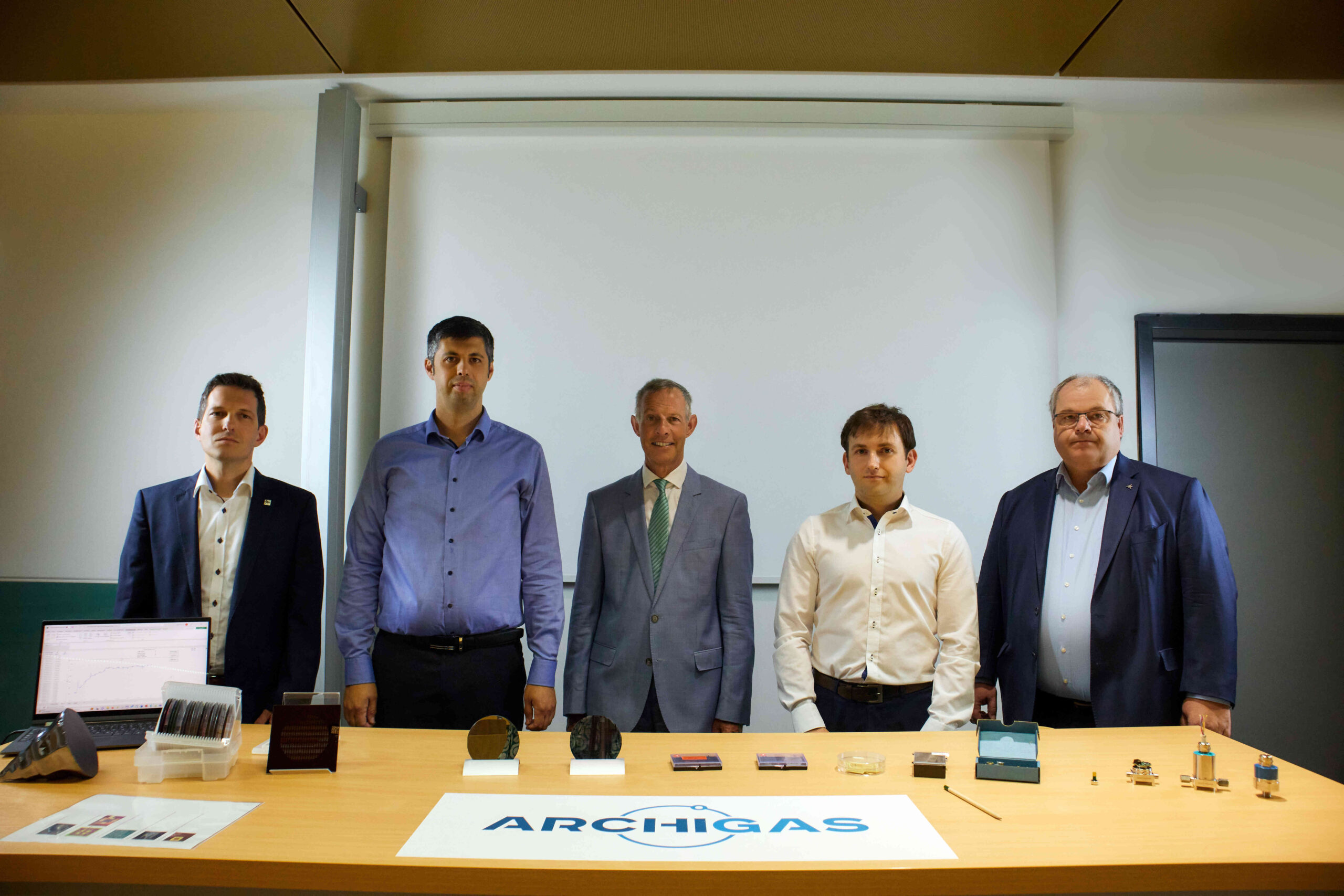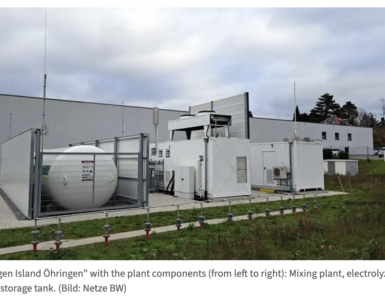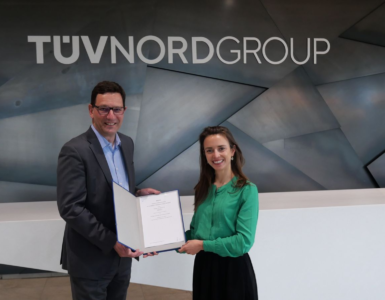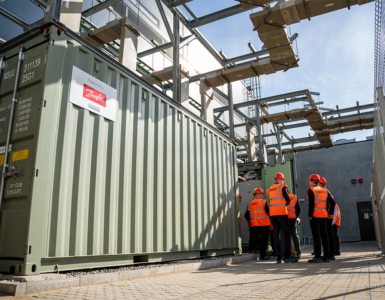Archigas – New impetus for the energy transition – Technological revolutions tap hydrogen.
The green energy transition has finally entered people’s minds: It has been recognized, albeit belatedly, that there is an urgent need to move away from fossil fuels in order to effectively counter climate change with all its negative consequences.
Hydrogen (H2) is playing a growing role in this context – science, politics and industry are increasingly convinced: Its development as an energy carrier of the future represents a real opportunity! Important impulses of possibly worldwide significance are increasingly emanating from Rüsselsheim in Germany.
Research at the RhineMain University of Applied Sciences (HSRM), innovative solutions from companies and the framework conditions provided by the city and state are creating a hot spot that is making decisive contributions to the energy transition with hydrogen. At a press conference on June 14, 2023, as part of the “Science Day” at HSRM, experts from research, political insiders and
the start-up Archigas, which presented remarkable results of its revolutionary H2 measurement technology, provided up-to-date insights.
🔥 What about we co-host a webinar? Let's educate, captivate, and convert the hydrogen economy!
Hydrogen Central is the global go-to online magazine for the hydrogen economy, we can help you host impactful webinars that become a global reference on your topic and are an evergreen source of leads. Click here to request more details
They say there are dreamers and there are doers. In order to promote the green energy transition quickly and effectively, institutions and companies are now needed that optimally combine both – vision and implementation. The RhineMain University of Applied Sciences provides such an example, as do political bodies and a developing industry, including start-ups such as Archigas, as well as future-oriented investors.
Hydrogen is good for dreaming and for doing, as the speakers each described from their own point of view. The focus was on technological solutions that create the basis for the development of the energy carrier H2, its promotion and development.
Udo Bausch, Mayor said:
It starts with research, and it requires outstanding minds.
“This is how the science location also becomes a business location. In his welcoming address, he underscored how much the city appreciates and actively supports the efforts of science and industry to advance the energy transition for a greener future and for the benefit of society as a whole.
“Rüsselsheim can be proud of you,” he addressed the founders of Archigas.
Prof. Dr. Andreas Brensing, Vice President for Research, Transfer, Sustainability at HSRM, emphasized earlier, said:
Hydrogen technology is one of the most important future technologies for the sustainable transformation of the entire energy sector, be it for power generation in mobile and stationary applications, in industrial processes or for energy storage.
“The university has special expertise in the Department of Engineering and has been very successful in carrying out projects with partners from industry for years. One example of this is the collaboration with the start-up Archigas, founded by two alumni. So we supply both innovative
technologies and bright minds,” said Brensing.
Prof. Dr. Markus Bender, professor of micro- and nanotechnologies at HSRM, underscored the need for ever better solutions to make H2 accessible.
Prof. Dr. Markus Bender, professor of micro- and nanotechnologies at HSRM said:
Hydrogen has the potential to replace fossil fuels almost one-to-one.
“Central to this are the sensors. They are just as important in generation by electrolysis as they are along the supply chain: for example, to permanently check the purity, concentration and pressure of the hydrogen, the fill level of tanks and the tightness of systems, to ensure operational reliability and ultimately to create the necessary trust in the technology. Mature sensor technology is therefore essential for the use of H2 in the energy transition!”
This is exactly where alumni and founders Illya Kaufman and Wladimir Barskyi started with the development of their revolutionary solution. The key feature of the innovation, which has received much attention worldwide, is the combination of two technologies: Archigas has technically implemented the precise thermal conductivity measurement principle in a new way and produces on the basis of so-called MEMS technology, which enables particularly cost- effective production.
The fact that the systems even function in extremely humid environments – until now a glaring weakness of hydrogen sensors – is another highly remarkable feature that was presented to the public for the first time at the press conference.
Prof. Dr. Friedemann Völklein, director of the Institute for Microtechnologies at HSRM until 2019, said:
The technological solution is groundbreaking.
“For example, around 1,200 exactly identical sensors can be obtained from a silicon wafer of around 10 centimeters – in other words, optimal conditions for the required mass production of particularly small, fast, highly precise and stable analysis systems,” explained internationally renowned sensor pioneer Prof. Dr. Friedemann Völklein, director of the Institute for Microtechnologies at HSRM until 2019.
Kaufman and Barskyi added, “The possibilities of our market-ready products are far from exhausted, and we are continuing to develop them. We thank the university, city, state and investors for their support in this endeavor, and we also hope to set a bit of an example for the next generation of students.”
After all, with their milestone in gas analysis, they want to make their contribution to the green energy transition with hydrogen – and show how vision becomes reality for this.
READ the latest news shaping the hydrogen market at Hydrogen Central
New impetus for the energy transition – Technological revolutions tap hydrogen, Rüsselsheim am Main, June 16, 2023








